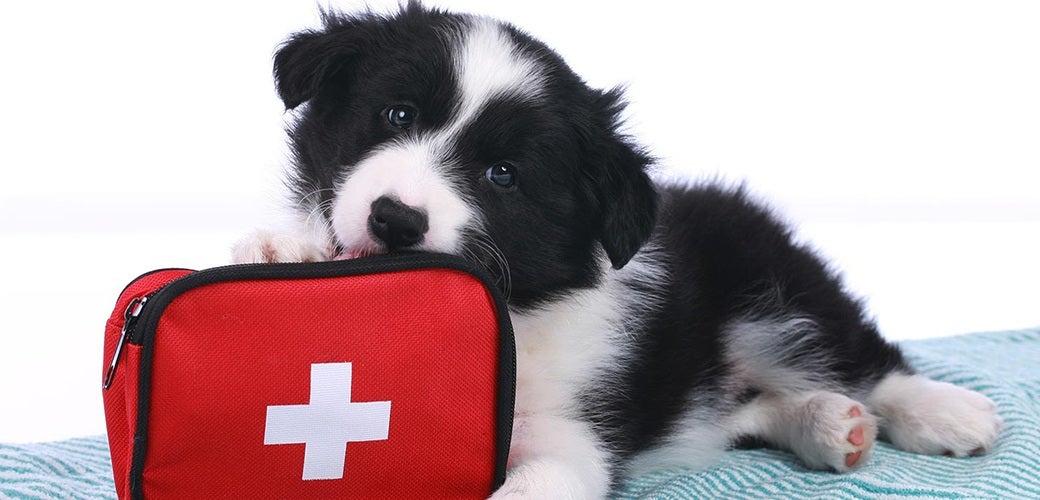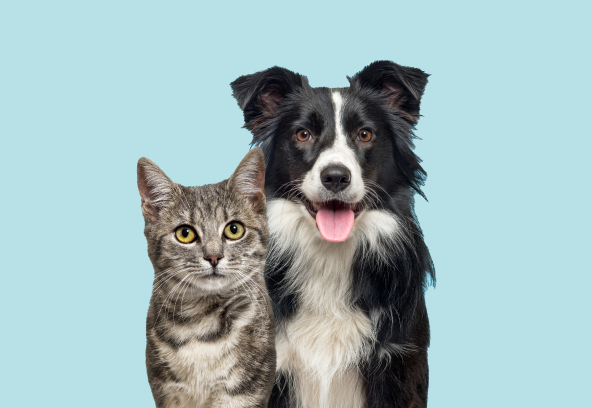
Building a First Aid Kit for Your Pet

The last thing you need in an emergency is to have to go search for supplies. We’ve put a list together to build a first aid kit for your pets.
In an emergency is can be stressful to administer first aid to a pet, especially if you don’t have the right supplies. Here’s some suggestions – they may just save your pet’s life!
Bandages: Gauze, clean rags or even a sock can be used as bandage material to control bleeding until you can get to a vet. Non-adhesive bandage wraps are also great to have as it does not stick to fur and is easier to remove. In an emergency, duct tape can be useful for holding splints or very temporary wound wrappings.
Scissors: Cutting tape or bandaging material is very difficult without the use of scissors. Having a small pair on hand may just save you a moment of un-needed stress or difficulty.
Water: Rehydrating, flushing wounds, soothing burns, soaking a paw, washing off toxins or cooling an overheating pet – there are many reasons why water is important to keep on hand. Don’t forget a collapsible water bowl!
Medications: A small cache of your pets regular medications should always be on hand. In addition to this styptic powder, antihistamines and sugar tablets are also a good idea. Styptic power helps stop bleeding from minor cuts or broken nails. Sugar tablets can help raise low blood sugar levels.
Sterile Saline Eye Wash: This is vital if your pet ever has debris or smoke in their eyes. Just flush the eyes liberally until the debris is gone.
Thermometer: The normal body temperature of a dog or cat is approximately 38-39°C. Use a lubricant and carefully take the temperature rectally to see if your pet has a fever or is hypothermic.
Dishwashing Detergent: This is very effective in removing toxins and grease from fur. Just remember to rinse your pet well with water afterwards.
Treats: Don’t forget treats! They may help calm or distract an injured pet, especially helpful during bandaging!
Restraints: When hurt, many dogs and cats can become fearful and aggressive. This unpredictable behaviour can make your pet much harder to deal with in an emergency. Keep them (and you) safe by including a blanket or towel, slip-leash and muzzle in your first aid kit. Blankets and towels can be used to wrap up injured pets, while muzzles can prevent accidental bites.
Contact Card: A card with the contact details for the after-hours vet, your normal vet, local police and a poison helpline is invaluable to have on hand during an emergency. Keep this on hand along with all details of your pets microchip and registration details.
Do you have a first aid kit for your pet? Have you ever wished you did have one on hand? Share it with us on our Facebook page!

